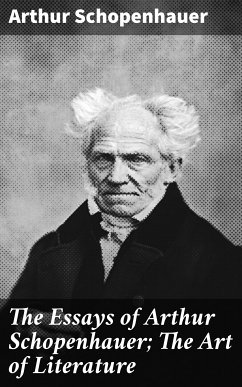In 'The Essays of Arthur Schopenhauer; The Art of Literature,' Schopenhauer delves into the intricacies and philosophical underpinnings of literary creation, critiquing both the nature and purpose of literature itself. His prose is characterized by a keen intellect and incisive wit, marked by his signature pessimistic perspective. Within this collection, Schopenhauer explores themes such as the relationship between art and the will, the essence of genius, and the role of the author as a conduit for truth, positioning literature within the broader canon of human expression and experience. This text not only serves as a critique of contemporary authors but also as a profound exploration of the aesthetic experience, providing insight into the soul of creativity in the 19th century. Arthur Schopenhauer, a pivotal figure in Western philosophy, is known for his profound influence on existentialism and psychoanalysis. His own struggles with the commercial aspects of literary production and the superficiality he perceived in his contemporaries fueled his examination of literature. Schopenhauer's philosophical inquiries often draw from his deep understanding of Eastern thought, particularly Buddhism, which shaped his views on suffering and desire, enriching his perspective on the human condition through literature. Readers interested in the intersection of philosophy and literature will find 'The Essays of Arthur Schopenhauer' both enlightening and challenging. Schopenhauer'Äôs unique lens on literary criticism not only stimulates intellectual engagement but also invites profound contemplation on the value and meaning of art in society. This work is essential for anyone seeking to deepen their understanding of literary theory and the philosophical questions surrounding artistic creation.
Dieser Download kann aus rechtlichen Gründen nur mit Rechnungsadresse in A, B, BG, CY, CZ, D, DK, EW, E, FIN, F, GR, H, IRL, I, LT, L, LR, M, NL, PL, P, R, S, SLO, SK ausgeliefert werden.









